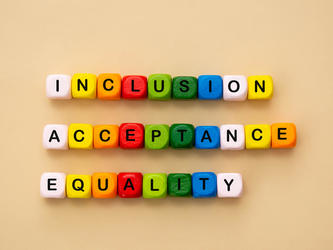Decolonising insights: Lessons from research in Australia and Asia
[id:2913753].jpg)
Having conducted research across diverse markets in Asia and Australia, I’ve observed profound differences in how insights practices address cultural diversity. Using Singapore as an example, given its advanced research practices and societal diversity, it’s clear that while both it and Australia are culturally diverse, their foundational approaches are shaped by distinct historical and socio-political contexts.
In Australia, the Culturally and Linguistically Diverse (CALD) framework often categorises individuals by country of birth, language, or English proficiency. However, this Eurocentric lens tends to overlook the rich, nuanced identities within multicultural communities.
In contrast, Singapore assumes cultural diversity as the norm. Its multi-ethnic fabric is embedded in the national narrative, and research methodologies often integrate multiple dimensions of cultural identity from the outset.
The divergence stems from colonial histories. Australia’s early immigration policies focused on assimilation, particularly for European migrants, leaving a legacy of frameworks that prioritise mainstream norms. Singapore, as a post-colonial city-state, has proactively built policies reflecting its multi-ethnic composition, fostering a baseline assumption of diversity in research.
Designing research with, not ‘for', communities
One of the most significant lessons I’ve learned is the importance of co-design – actively involving communities in shaping the research process. Traditional methodologies often treat CALD communities as passive subjects, but engaging them as partners ensures richer, more accurate insights. Practical steps include:
- Using bilingual facilitators to bridge language barriers
- Honouring cultural protocols in interviews
- Ensuring data analysis reflects the lived experiences of participants.
A recent mental health project underscored this need. Standard survey questions failed to account for cultural perceptions of mental health. By reframing questions around community wellbeing and support systems, we elicited responses that were both culturally sensitive and more reflective of participants’ realities.
The role of lived experience
Lived experience enriches the research process by offering intrinsic cultural understanding. Researchers with lived experience are better equipped to ask the right questions and interpret data with sensitivity. For those without it, cultural humility is essential. Curiosity, openness and collaboration with cultural experts can help bridge gaps in understanding.
Addressing power imbalances
Power dynamics between researchers and participants can introduce bias. These imbalances shape how questions are framed and how comfortable respondents feel about sharing their true thoughts. To mitigate this, researchers must undergo cultural training, and where possible, pair interviewers with participants from similar cultural backgrounds to foster trust.
Beyond Eurocentric frameworks
Traditional insights often reduce culturally diverse data to fit mainstream paradigms. For instance, interpreting behaviours through individualistic frameworks may miss collectivist cultural contexts. To overcome this, researchers need to adopt a pluralistic approach, valuing multiple worldviews equally and analysing data with cultural contexts at the forefront.
Avoiding tokenism
Inclusion must go beyond box-ticking. Genuine representation requires integrating diverse voices throughout the research process – from design to analysis. This means assembling culturally diverse research teams, incorporating community feedback, and embedding cultural insights into strategy, not as an afterthought but as a foundation.
Insights for long-term impact
Insights are most effective when they inform long-term strategies. Whether influencing policy or guiding business decisions, they should evolve continuously, with feedback loops to ensure relevance. Inclusive research isn’t just about understanding; it’s about creating actionable pathways for positive change.
Decolonising research practices
Decolonising research starts with self-reflection – identifying and challenging biases ingrained by systems that privilege dominant narratives. Strategies must be re-examined where marginalised voices are excluded, ensuring they are reframed with inclusivity at their core.
A career in inclusive research – it takes a village
For those aspiring to work in this space, curiosity and a commitment to lifelong learning are essential. My journey, shaped by my multicultural background, has been driven by a desire to bridge gaps and amplify underrepresented voices. Research has the power to transform society, and I’m privileged to be part of this evolution – ensuring that data and insights not only informs but also drives meaningful, lasting change.
By challenging frameworks and embracing diverse perspectives, we can reshape research to better reflect the societies it aims to serve, creating a world where every voice is heard and respected.
Isabel Zhang is founder of Cross-Cultural Insights Australia and chief executive at Australian Institute for Diversity in Mental Health

We hope you enjoyed this article.
Research Live is published by MRS.
The Market Research Society (MRS) exists to promote and protect the research sector, showcasing how research delivers impact for businesses and government.
Members of MRS enjoy many benefits including tailoured policy guidance, discounts on training and conferences, and access to member-only content.
For example, there's an archive of winning case studies from over a decade of MRS Awards.
Find out more about the benefits of joining MRS here.













0 Comments